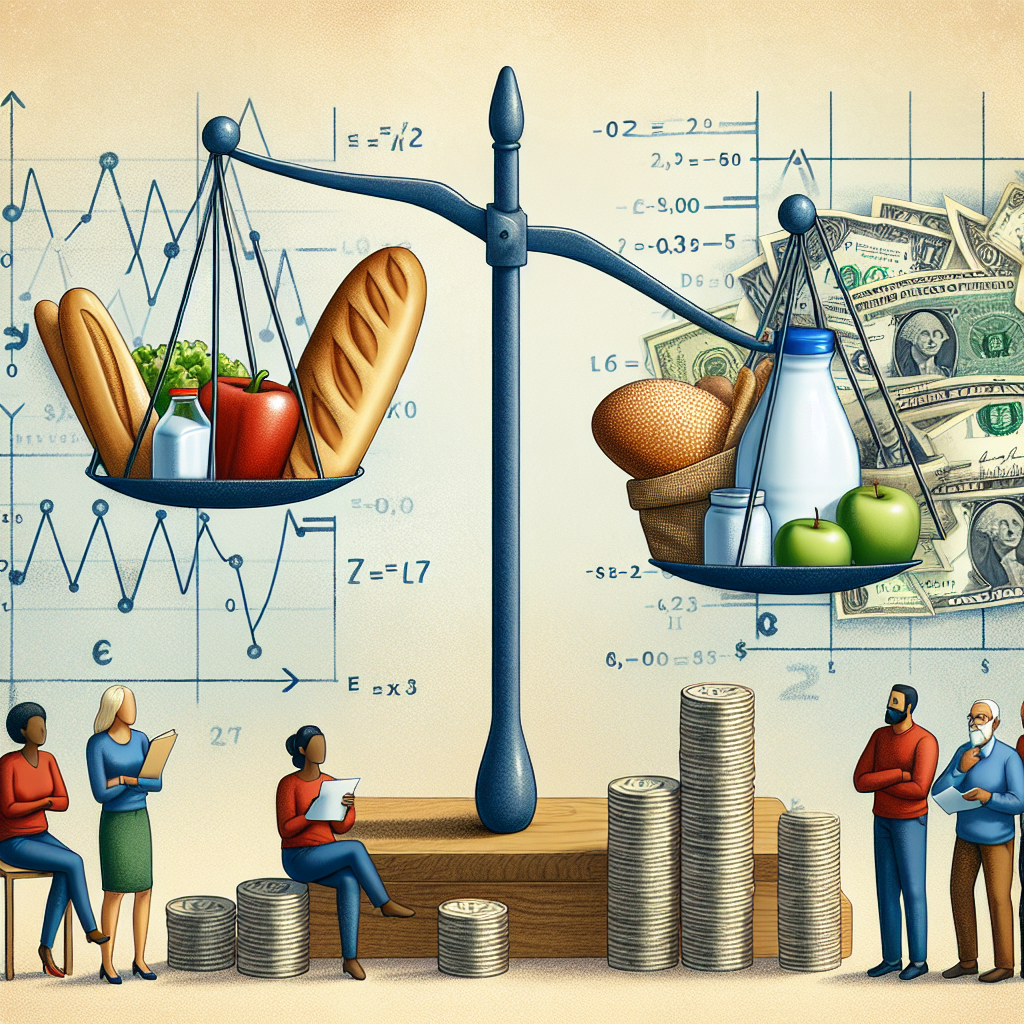Title: The Inflation Equation: How Rising Costs Affect Everyday Spending
Introduction
In recent times, inflation has emerged as a potent economic force, reshaping the financial landscape for consumers and policymakers alike. As prices of goods and services soar, the impact of inflation reverberates through every aspect of daily life, from grocery bills to housing costs. This article explores the factors driving inflation, its influence on everyday spending, and strategies for consumers to navigate this challenging economic climate.
Understanding Inflation
Inflation, at its core, is the rate at which the general level of prices for goods and services rises, eroding purchasing power over time. It is measured by indices such as the Consumer Price Index (CPI) and the Producer Price Index (PPI). Several factors contribute to inflation, including supply chain disruptions, increased demand for products and services, rising production costs, and expansionary monetary policies.
Recent Trends and Causes
In the wake of the COVID-19 pandemic, economies around the globe have witnessed unprecedented inflationary pressures. Disrupted supply chains, labor shortages, and increased production costs have led to significant price hikes across various sectors. Moreover, government stimulus packages intended to jumpstart economies have, in some cases, fueled increased consumer demand, further straining supply and pushing prices upward.
Impact on Everyday Spending
-
Grocery Bills: One of the most immediate and visible effects of inflation is on food prices. Consumers are encountering higher costs at grocery stores, forcing many to reconsider their shopping habits. Essential items such as meat, dairy, and produce have seen significant price spikes, leading families to seek alternatives, buy in bulk, or switch to generic brands.
-
Housing Costs: The housing market has become an inflationary hotspot, with home prices and rents climbing steeply. Low-interest rates coupled with high demand have made homeownership increasingly expensive, pushing many potential buyers out of the market. Renters are facing similar challenges, with landlords raising rents to keep up with inflationary costs.
-
Fuel and Transportation: Rising fuel prices are impacting not only transportation costs for individuals but also the broader supply chain. Higher fuel costs increase the expenses of delivering goods, contributing to the overall rise in prices. Consumers are facing larger bills at the pump and elevated prices for goods reliant on transportation.
- Utilities and Services: Utility bills, including electricity, gas, and water, often rise with inflation. Additionally, service providers across sectors, from healthcare to education, are adjusting their prices to reflect higher operational costs. This increase trickles down to households, affecting monthly budgets and spending patterns.
Coping Strategies for Consumers
-
Budget Adjustment: Revisiting and adjusting personal budgets can help individuals align their spending with the new economic realities. By identifying non-essential expenses, consumers can allocate more resources to necessities.
-
Smart Shopping: Employing strategies such as using coupons, shopping during sales, and opting for generic brands can mitigate the impact of rising prices on grocery bills. Additionally, bulk buying and meal planning can help save money.
-
Energy Efficiency: Investing in energy-efficient appliances and adopting habits that reduce energy consumption can lower utility bills. Simple steps like using LED bulbs, sealing windows, and adjusting thermostats can contribute to savings.
- Long-term Planning: In times of inflation, long-term financial planning becomes crucial. Building an emergency fund, investing in assets that traditionally outpace inflation, and diversifying income streams can provide financial security.
Conclusion
Inflation, a complex economic phenomenon, continues to shape the way consumers manage their finances and daily expenses. Understanding its drivers and impacts allows individuals to make informed decisions and adapt effectively. Through strategic adjustments and prudent financial planning, consumers can weather the challenges posed by rising costs, safeguarding their financial well-being in an evolving economic landscape.
